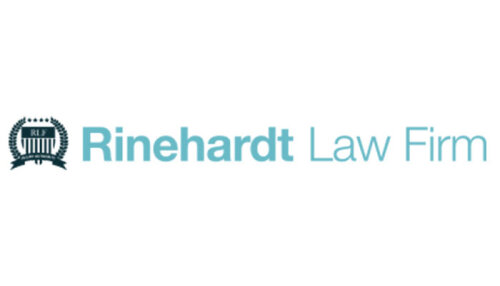Best Brain Injury Lawyers in Ontario
Share your needs with us, get contacted by law firms.
Free. Takes 2 min.
List of the best lawyers in Ontario, United States
1. About Brain Injury Law in Ontario, Canada
Brain injury law in Ontario sits at the intersection of personal injury, health care rights, and no-fault auto insurance. A brain injury can result from car crashes, falls, sports injuries or medical events, and it often affects long-term functioning. In Ontario, you may pursue compensation through tort claims, auto insurance no-fault benefits, workers' compensation, or medical negligence actions depending on how the injury occurred.
Ontario’s legal framework recognizes two main pathways for relief after a brain injury: civil claims for damages through the courts and statutory benefits through insurance and workplace programs. Civil claims typically involve a negligence theory against a responsible party. Auto insurance no-fault benefits provide immediate, structured support after motor vehicle accidents, regardless of fault. Workplace injuries may qualify for benefits under the Workplace Safety and Insurance Act. These routes can overlap or interact, requiring careful navigation by a knowledgeable legal professional.
Legal work in this area often requires coordinating medical documentation, rehabilitation plans, and timelines that balance health needs with legal deadlines. A lawyer who specializes in brain injury can help you understand which claims apply, gather evidence, and negotiate with insurers or defendants. This guide focuses on Ontario practice, where provincial statutes and regulatory regimes shape your options and deadlines.
Key resources: For general brain injury information, the Centers for Disease Control and Prevention (CDC) provides comprehensive facts and statistics. CDC TBI facts.
Ontario-specific organizations offer practical guidance for survivors and families. The Ontario Brain Injury Association (OBIA) is a leading non-profit that provides resources, advocacy, and support services. OBIA.
2. Why You May Need a Lawyer
Car crash in a city like Toronto or Ottawa can trigger multiple legal avenues. An injury may qualify you for no-fault auto benefits, while you may also have a negligence claim if another driver caused the crash. Legal counsel helps you coordinate both streams and avoid gaps in benefits or compensation.
A brain injury at work often leads to Workers' Safety and Insurance Board (WSIB) claims and potential disputes over benefits for medical care, wage replacement, or long-term supports. A lawyer can help you appeal a WSIB decision, gather medical evidence, and demand appropriate rehabilitation funding. You should seek advice promptly to protect timelines and rights.
Medical negligence that leads to brain injury requires careful evaluation. If a hospital or clinician breached the standard of care and caused injury, you may have a professional liability claim. An experienced solicitor can assess causation, damages, and the appropriate forum for a claim within the applicable limits period.
Insurance disputes are common after a brain injury. Insurers may challenge the necessity or duration of medical rehabilitation, funding for assistive devices, or disability payments. A dedicated brain injury attorney helps you appeal denials, negotiate settlements, and ensure access to ongoing care.
Slip and fall or premises liability cases in Ontario can produce brain injuries with substantial impact. A lawyer can determine whether a property owner breached their duty of care and whether negligence caused your injury, enabling a claim for damages that cover medical costs and lost income.
Disability and long-term care claims often involve complex policy language. If your insurer limits coverage or terminates benefits for a brain injury, a lawyer can advocate for continued access to therapy, home care, and supportive services. This is particularly important when medical needs evolve over time.
3. Local Laws Overview
Statutory Accident Benefits Schedule - No-Fault Benefits (SABS) under the Insurance Act
The Statutory Accident Benefits Schedule governs auto insurance benefits in Ontario. It provides no-fault coverage for medical treatment, income replacement, and rehabilitation after motor vehicle accidents, regardless of fault. Insurers administer these benefits, and disputes are often resolved through internal appeals or tribunals. This regime is designed to support rapid access to care while legal claims are pursued on the merits.
Recent updates to SABS have focused on expanding access to medical and rehabilitation services and clarifying criteria for catastrophic impairment. These changes can affect which therapies are covered and for how long. You should review the latest insurer guidelines and speak with a brain injury lawyer about how SABS applies to your situation.
Limitations Act, 2002
The Limitations Act sets the time limits for starting civil actions in Ontario. The default rule generally requires a claim to be launched within two years from the day the claimant learned of the injury and its potential consequences. Certain exceptions apply, and some claims may have shorter or longer windows depending on the facts and defendant type. Missing a deadline can bar your claim permanently, so timely legal guidance matters.
Understanding the discovery rule and any tolling provisions is important for brain injury cases, as cognitive or medical factors may delay awareness of the claim’s significance. A lawyer helps you map out applicable deadlines and ensures filings occur on time.
Workplace Safety and Insurance Act, 1997 (WSIA)
WSIA governs workers' compensation in Ontario and creates the framework for WSIB benefits after workplace brain injuries. It covers medical care, wage replacement, and long-term rehabilitation, with a formal process for claims and appeals. The WSIB periodically updates policy guidelines that affect eligibility and benefit amounts.
When a workplace brain injury is involved, you may need to navigate concurrent rights to tort claims or other benefits alongside WSIB. A knowledgeable solicitor helps you coordinate these streams, avoid duplication of benefits, and maximize overall compensation.
4. Frequently Asked Questions
What counts as a brain injury for legal claims in Ontario?
A brain injury includes traumatic brain injury and acquired brain injuries that impair function. Legal claims focus on demonstrable medical diagnoses, lasting impairment, and the impact on daily living and earning capacity. Documentation from physicians and therapists is essential.
How do I start a brain injury lawsuit in Ontario?
Begin with a consultation to evaluate your options. If pursuing a civil claim, your lawyer will identify potential defendants, gather medical records, and file a statement of claim within applicable limits. The process typically involves disclosure, examinations for discovery, and trial planning.
What is SABS and how does it relate to brain injury claims?
SABS provides no-fault auto insurance benefits after a motor vehicle accident. It covers medical care, rehabilitation, and wage replacement. It runs alongside any separate negligence claim you may pursue.
Do I need a lawyer for a no-fault auto insurance claim in Ontario?
Yes. A lawyer can help ensure you receive all eligible benefits, navigate insurer deadlines, and appeal denials. Legal counsel can also coordinate SABS claims with any tort action if appropriate.
How long do I have to file a brain injury claim in Ontario?
The general limit is two years under the Limitations Act, 2002. Some claims have different timelines, and discovery may affect when the clock starts. A lawyer helps you confirm your exact deadline early.
What is the difference between a tort claim and SABS benefits?
A tort claim seeks damages from a negligent party in court. SABS provides no-fault benefits through auto insurance for medical care and support services. Both may run in parallel in a brain injury case.
Can I sue for medical malpractice causing brain injury in Ontario?
Yes, if medical negligence caused or significantly contributed to the brain injury. A medical malpractice claim requires strong evidence of breach of the standard of care and causation, and must be filed within applicable time limits.
Should I hire a local Ontario brain injury lawyer?
Yes. Local lawyers understand provincial statutes, court procedures, and insurer practices. They can coordinate with medical professionals and ensure timely handling of deadlines and appeals.
What costs are involved in hiring a brain injury solicitor?
Costs vary by case and fee arrangements. Many Ontario lawyers offer contingency fees for certain personal injury matters. Ask about retainers, expected hours, and potential disbursements during the initial consult.
Is there a path to appeal a denied brain injury benefit decision?
Yes. Insurer denials in SABS or disability claims can typically be appealed through internal review, regulator processes, or tribunal hearings. A lawyer guides deadlines and evidence requirements for appeals.
Do I need medical evidence to prove my brain injury claim?
Yes. Comprehensive medical documentation strengthens your case. Include diagnoses, imaging results, neuropsychological assessments, and therapy plans to demonstrate impairment and needs.
5. Additional Resources
- Ontario Brain Injury Association (OBIA) - Provides support, education, resources, and advocacy for brain injury survivors and families in Ontario. Useful for information on services, care planning, and navigating benefits. OBIA.
- Workplace Safety and Insurance Board (WSIB) - Ontario agency administering workers' compensation for work-related brain injuries. Offers claim guides, rehab programs, and benefit details. WSIB.
- CanLII - Free access to Ontario statutes, regulations, and case law, useful for researching the Insurance Act, Limitations Act, and WSIA. CanLII.
6. Next Steps
- Identify the type of brain injury claim you may have (auto no-fault, tort/negligence, WSIB, or medical negligence) based on how the injury occurred. Allocate a rough timeline for each path.
- Collect and organize medical records, imaging, neuropsychological assessments, therapy notes, and accident reports. Create a file with dates, providers, and contact information.
- Consult a Ontario brain injury lawyer who specializes in personal injury, WSIB, and medical malpractice. Book a short intake to discuss your case and goals.
- Ask about the lawyer's experience with brain injury clients, expected timelines, costs, and typical outcomes. Request examples of similar cases and settlements or decisions.
- Agree on a fee arrangement and retainment terms. Clarify what happens if the claim is not successful and how costs are handled.
- File the appropriate claim within the applicable deadlines and set a practical plan with your attorney for medical evidence and expert opinions.
- Maintain ongoing medical care and documentation during the legal process to support damages and ongoing needs. Regularly update your attorney on your health changes.
Lawzana helps you find the best lawyers and law firms in Ontario through a curated and pre-screened list of qualified legal professionals. Our platform offers rankings and detailed profiles of attorneys and law firms, allowing you to compare based on practice areas, including Brain Injury, experience, and client feedback.
Each profile includes a description of the firm's areas of practice, client reviews, team members and partners, year of establishment, spoken languages, office locations, contact information, social media presence, and any published articles or resources. Most firms on our platform speak English and are experienced in both local and international legal matters.
Get a quote from top-rated law firms in Ontario, United States — quickly, securely, and without unnecessary hassle.
Disclaimer:
The information provided on this page is for general informational purposes only and does not constitute legal advice. While we strive to ensure the accuracy and relevance of the content, legal information may change over time, and interpretations of the law can vary. You should always consult with a qualified legal professional for advice specific to your situation.
We disclaim all liability for actions taken or not taken based on the content of this page. If you believe any information is incorrect or outdated, please contact us, and we will review and update it where appropriate.










